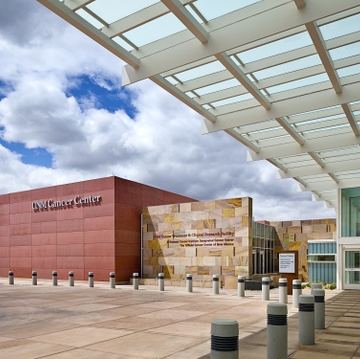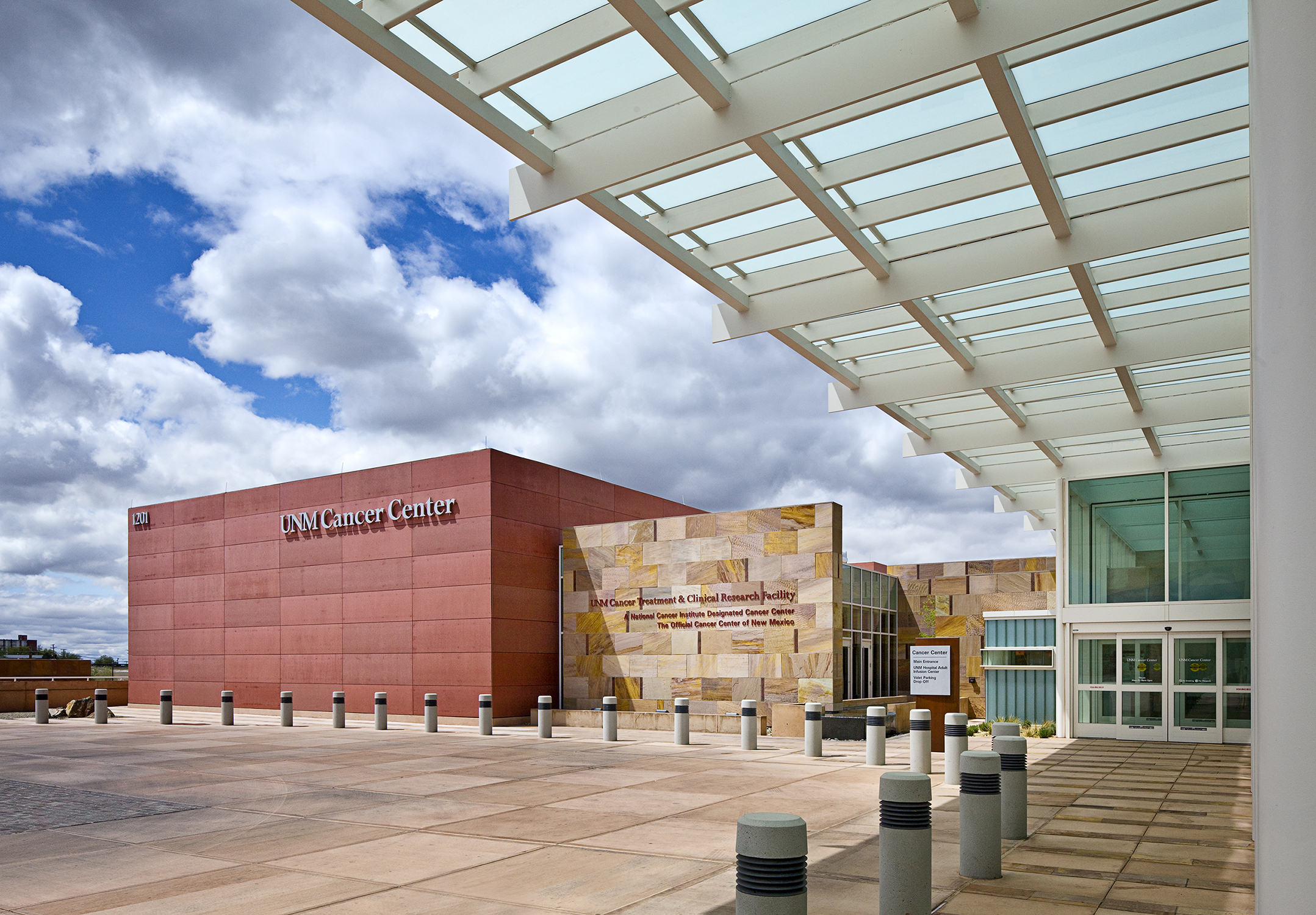
Staying Home for Treatment
UNM Cancer Center’s Bone Marrow Transplant program is the first in the state to achieve FACT accreditation, enabling many more New Mexicans with blood disorders to stay home
When people must travel out of state for cancer treatment, they leave behind their support networks and must take along a caregiver, disrupting the family.
"It's a pretty big burden to have to go somewhere else for treatment," says Matthew Fero, MD, FACP, medical director of the UNM Comprehensive Cancer Center's Bone Marrow Transplant program.
Now, that travel burden could be greatly reduced for many New Mexico families. The Bone Marrow Transplant program recently received accreditation by the Foundation for the Accreditation of Cellular Therapy (FACT). It's the first program in the state to achieve FACT accreditation, making stem cell transplant available to a wider number of New Mexicans.
"We have done something that nobody else in the state has done," says Richard Lauer, MD, FACP, FRSM, who serves as chief medical officer and Deputy CEO of the UNM Cancer Center. "Insurance companies recognize the quality of the programs that have FACT accreditation, which means our patients don't have to leave the state to get these advanced [bone marrow transplant] treatments."
FACT accreditation is a voluntary process that measures a transplant program against strict quality standards. It took more than a year to achieve, says Maria Limanovich, the program's nurse manager.
The effort has paid off. The nationally recognized accreditation makes the UNM Cancer Center program more affordable for many more people in New Mexico, Limanovich says. "This accreditation is required by many insurances to allow their patients to get transplants."
The accreditation covers the clinical, collection and laboratory components of the transplant program.
The clinical component covers autologous transplants in adults. After treatment, Limanovich and her team closely follow each patient for about two months, after which the patients return to the care of their referring doctors. Accreditation requires the program to report annual results on all patients, Limanovich says, so she and her team follow up with patients or their doctors.
The clinical component also encompasses the hiring and training of staff and physicians. "You must have a multidisciplinary team of transplant specialists," Limanovich says, "and provide documentation of ongoing transplant specialty education every year."
The collection component covers the first step of the transplant process, collecting the stem cells. Stem cells are the blood-forming cells that reside in the bone marrow, but they can be coaxed into the blood stream to be collected. This component must meet strict national standards for safe collection. The stem cells are collected by running blood from the patient through an IV line into a blood apheresis machine, which sorts out the stem cells and returns the blood to the patient.
The laboratory component is responsible for processing the stem cells. Of the three, it is the only one that is conducted in a certified lab and not at the UNM Cancer Center.
The lab counts the stem cells, performs sterility testing, and then carefully freezes them so that they can be stored for many years. This component also must meet strict national standards for safe processing, freezing, storage, testing and tracking.
In addition to making bone marrow transplants more accessible for people in New Mexico, the accreditation helps the Bone Marrow Transplant program offer more treatment options.
"I see this [accreditation] as laying a foundation," Fero says. He explains that adding more components in the future could increase available treatment options. He and his team would like to add components for bone marrow transplants in children, CAR-T cell therapy and eventually donor transplants.
The program is making plans to open transplant clinical trials, which is another way to bring new cell therapies and new approaches to treating blood cancers. Until now, no other entity in the state has been able to offer clinical trials in cellular therapies.
"This accreditation is very important for the state of New Mexico," says Lauer. "Our role is to bring the most advanced, best-available cancer treatments to our patients here in this state. We're doing that. And the patients benefit."

